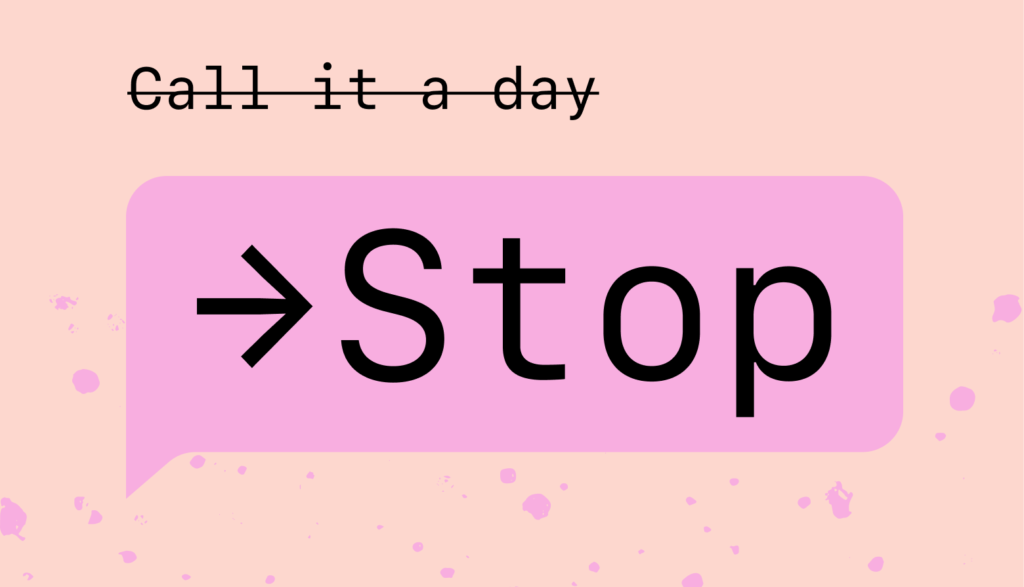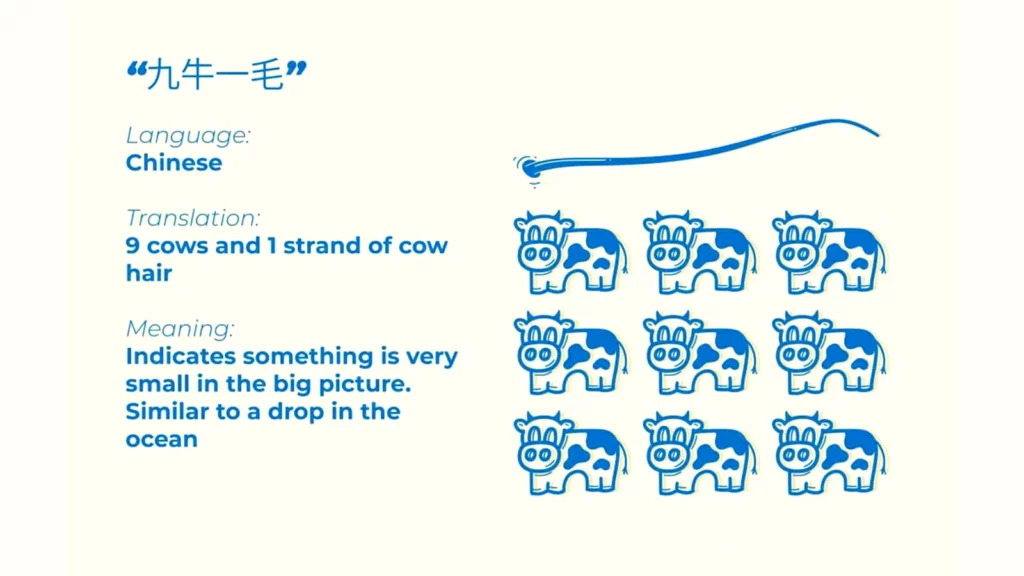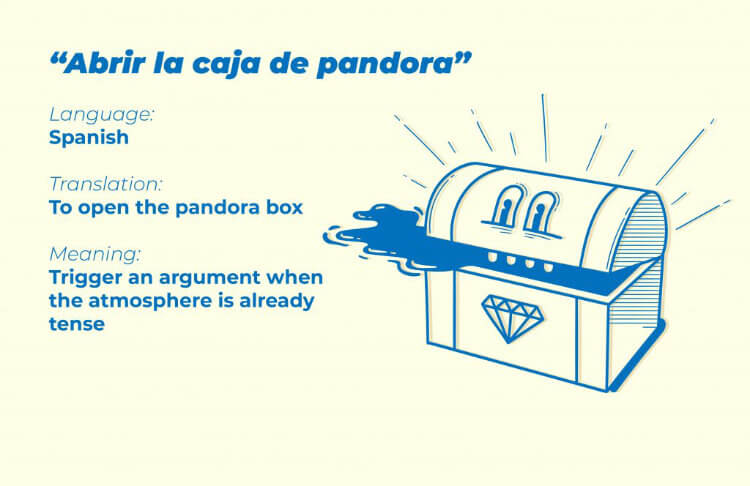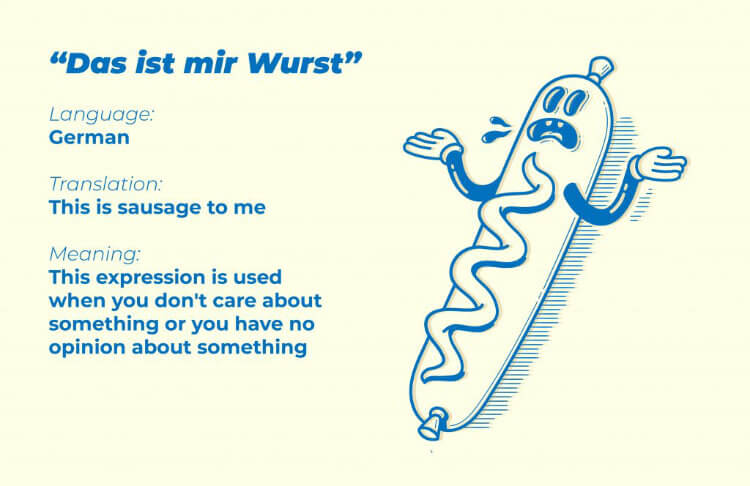While not many are aware of their importance or know how to use them, business idioms can be important in various professional settings. They are common in the business world to convey specific meanings or ideas concisely, often drawing on metaphors or cultural references. Business idioms can facilitate clear and efficient communication among colleagues, clients, and partners who are familiar with them. Using idioms can help convey complex ideas or emotions succinctly, saving time and enhancing understanding. They also show your knowledge of language, which is always a plus.
Idioms are often culturally rooted and widely recognized within specific industries or regions. Incorporating such expressions into your speech can help you build rapport and connect with others, showing that you are familiar with the industry or business environment. Fluent and appropriate use of idiomatic expressions can not only demonstrate your fluency in the language but also show your understanding of business norms and practices. This can contribute to creating a professional image and instilling confidence in you.
They can add flavor and richness to business writing, making it more interesting and persuasive. When used in a witty (and never offensive) way, they can help convey ideas or arguments more memorably, which is beneficial in marketing, presentations, or negotiations.
20 Business Idioms You Can Actually Use At Your Workplace
Rooted in culture, history, or traditions, correctly using idiomatic expressions specific to a particular culture or language can stress your cultural competency, allowing you to navigate intercultural business interactions more effectively.
However, always use idiomatic expressions judiciously, considering the context and the level of familiarity of your audience. Misusing or overusing them can lead to confusion or miscommunication, particularly when dealing with individuals who are not familiar with the language or culture.
You can actually use any of the idioms from the list below:


1. “Thinking outside the box” – Refers to thinking creatively or innovatively, going beyond traditional or conventional approaches.
2. “Bite the bullet” – Means facing a difficult or unpleasant situation with courage and determination.
3. “Get the ball rolling” – Means initiating or starting a process or activity.
4. “Put all your eggs in one basket” – Refers to relying on a single strategy or investment, which can be risky if it fails.
5. “Cutting corners” – Means taking shortcuts or bypassing proper procedures, often resulting in lower quality or potential problems.
6. “Playing hardball” – Refers to adopting a tough or uncompromising approach in negotiations or business dealings.
7. “The bottom line” – Refers to the ultimate result or outcome, usually in financial terms.
8. “Going the extra mile” – Means making additional effort or doing more than what people expect you to achieve to satisfy a customer.
9. “Putting the cart before the horse” – Refers to doing things in the wrong order or prioritizing incorrectly.
10. “Hitting the ground running” – Means starting a project or job quickly and energetically without needing much preparation.
11. “A win-win situation” – Refers to a scenario where all parties involved benefit or gain something positive.
12. “Break the ice” – Means to initiate or start a conversation or interaction in order to make others feel more comfortable.
13. “Thinking on your feet” – Means making quick decisions or finding solutions in a spontaneous or adaptive manner.
14. “In the driver’s seat” – Means being in control or having the power to make decisions.
15. “Keep your eye on the ball” – Means focusing on the task at hand with no distractions swaying you.
16. “Pass the buck” – Means shifting responsibility or blame to someone else.
17. “Touch base” – Means to make contact or communicate with someone, often to exchange updates or information.
18. “Raising the bar” – Means setting higher standards or expectations for performance or quality.
19. “A level playing field” – Refers to a fair and equal opportunity for all participants.
20. “Back to square one” – Means returning to the beginning or starting point, often due to a setback or failure.
Business Idioms You Can Put Into Your Job Announcements


Now let’s look at some examples of how you can incorporate business idioms into your LinkedIn (or maybe other platform) job announcements:
- “We are seeking a candidate who can think outside the box to drive innovative marketing strategies and initiatives.”
- “Join our team and hit the ground running as we navigate a rapidly evolving industry landscape.”
- “We are looking for a self-starter who can take the bull by the horns and lead our sales efforts.”
- “The successful candidate will have a proven track record of going the extra mile to deliver exceptional customer service.”
- “We need someone who can keep their eye on the ball and effectively manage multiple projects simultaneously.”
- “Join our dynamic team and be in the driver’s seat of our financial planning and analysis activities.”
- “We are looking for a candidate who can break the ice with potential clients and build strong business relationships.”
- “The ideal candidate will have a solid understanding of market trends and be able to capitalize on emerging opportunities.”
- “We are seeking a detail-oriented individual who can cut corners without compromising quality and accuracy.”
- “Join our team and help us raise the bar by developing and implementing best-in-class HR practices.”
Remember, when using idioms in job announcements, ensure that the intended meaning is clear and easily understood by all applicants. Be mindful of the tone and formality of the job announcement, as idioms can vary in appropriateness depending on the context.
Business Idioms You Can Put Into Your Cover Letter


Some examples of how you can put business idioms can into a cover letter to show off your language skills and wittiness:
- “I am excited to join your team and hit the ground running, leveraging my skills and experience to drive impactful marketing campaigns.”
- “Throughout my career, I have consistently gone the extra mile to deliver exceptional results and exceed expectations.”
- “I am confident that my ability to think outside the box will enable me to bring fresh perspectives and innovative solutions to your organization.”
- “As a candidate, I am committed to keeping my eye on the ball and remaining focused on achieving the company’s goals.”
- “I am eager to take the bull by the horns and lead cross-functional teams in successfully executing complex projects.”
- “With a proven track record of building strong business relationships, I am skilled at breaking the ice with clients and stakeholders.”
- “I am accustomed to navigating challenging market landscapes and turning obstacles into opportunities for growth and success.”
- “My attention to detail and commitment to quality ensure that I never cut corners and consistently deliver high-quality work.”
- “I thrive in fast-paced environments, and my ability to think on my feet allows me to make quick decisions and adapt to changing circumstances.”
- “As a candidate, I am excited to be in the driver’s seat of strategic initiatives, collaborating with cross-functional teams to drive business growth.”
You can literally copy and paste any of these into your cover letter. However, remember to integrate the idioms naturally into your cover letter while maintaining a professional and concise tone. The purpose of using them is to enhance your qualifications and convey your enthusiasm for the position.
What Are Idioms and How Are They Conveyed?


Idioms are expressions or phrases that have a figurative meaning different from the literal interpretation of their individual words. They convey a specific idea, sentiment, or cultural understanding. Idiomatic expressions are usually deeply rooted in a language and its culture, and their meanings may not be apparent from the literal definitions of the words used.
The coining of idioms is a gradual and organic process that occurs over time within a language community. Idioms may originate from various sources, including literature, historical events, cultural references, or even specific professions or industries.
A few ways idioms are coined include:
- Metaphors: Many idioms are formed through metaphoric associations, where a word or phrase is used figuratively to represent a concept or idea. For example, the idiom “break the ice” derives from the metaphorical image of breaking the surface of ice to initiate a conversation.
- Cultural References: Idioms often emerge from cultural references widely understood within a particular community. These references can include folklore, historical events, famous figures, or popular media. The idiom “the ball is in your court” comes from the game of tennis, where players hit the ball back and forth between themselves.
- Common Experiences: Idioms can arise from common experiences or situations shared by a language community. These idioms capture the essence of those experiences in a concise and memorable way. For instance, the idiom “barking up the wrong tree” conveys the idea of pursuing a mistaken or misguided course of action, likening it to a dog barking at the wrong tree.
- Linguistic Patterns: Certain linguistic patterns, such as rhyming, alliteration, or repetition, can contribute to the formation of idioms. These patterns enhance the memorability and rhythmic flow of the expressions. “Easy as pie” uses alliteration and simplicity to convey a task that is effortless.
- Historical Context: Historical events or specific moments can give rise to idioms that encapsulate the significance or outcomes of those events. These idioms often become entrenched in the language due to their association with important historical contexts.
Business Idioms That May Be Outdated


While some idioms may become less common or considered outdated over time, their usage can still vary depending on the context and region. A few professional idioms that some may consider outdated or less frequently used in modern interactive communication could be:
- “Don’t rock the boat”: This idiom advises against causing disruption or challenging the status quo. It can come off as discouraging innovation or change, which may be contrary to the collaborative and adaptive approach encouraged in many modern business environments.
- “Pencil it in”: This phrase suggests making a tentative appointment or scheduling something informally. However, with the prevalence of digital calendars and scheduling tools, the use of pencils for scheduling has become outdated.
- “Drop the ball”: This idiom refers to failing to fulfill a responsibility or making an error. While the concept of making mistakes is still relevant in business, the specific phrase “drop the ball” may be less commonly used compared to more direct expressions like “make a mistake” or “miss the mark.”
- “In the driver’s seat”: This idiom implies being in control or having a position of authority. However, as gender-neutral language becomes more prevalent, alternatives such as “in control” or “in a leadership role” are often preferred to avoid the gender-specific connotation of “driver.”
- “Put all your eggs in one basket”: This idiom advises against putting all resources or efforts into a single option or investment. While the concept still holds merit, the idiom itself may sound old-fashioned or clichéd to some.
As language usage evolves over time, outdated or less common in one context could still be perfectly okay to use in others. Always consider the appropriateness and relevance of idioms based on the audience, industry, and cultural context in which you are communicating.
Idioms Not To Use In Certain Business Communication Contexts


While they can be useful for conveying meaning and adding color to language, some business idioms may be considered inappropriate or insensitive in certain settings. Some potentially offensive idioms could include:
- “Kill two birds with one stone”: This idiom means to accomplish two tasks with a single action. However, the violent imagery may be inappropriate in certain professional or sensitive contexts. Use alternative expressions like “achieve multiple goals simultaneously” to convey the same idea without potential offense.
- “Low-hanging fruit”: This phrase refers to easily attainable opportunities or targets. However, it can sound as dismissive or belittling. Using alternative expressions like “quick wins” or “readily accessible opportunities” can maintain a more positive and inclusive tone.
- “Blood is thicker than water”: This idiom suggests that family bonds are stronger than other relationships. While it may be suitable in personal conversations, it can be seen as unprofessional or favoritism in a business setting where impartiality and fairness are expected.
- “Climbing the corporate ladder”: This expression implies seeking advancement in a hierarchical organization. However, it may not be suitable in settings that promote a more collaborative or flat organizational structure. Instead, you could use phrases like “advancing in one’s career” or “seeking professional growth.”
- “Throwing someone under the bus”: This phrase refers to blaming or sacrificing someone else to protect oneself. It can create a negative as well as confrontational atmosphere. Opt for more diplomatic expressions like “addressing the issue constructively” or “taking responsibility for one’s actions” to foster a more cooperative environment.
Note:
Try to be aware of the context, audience, and sensitivity of certain topics when using idioms in professional settings. Choose expressions that are inclusive and appropriate for the specific environment to maintain a respectful atmosphere. Don’t be the New York that was about to fight a girl after the girl told her to “break the leg” (she literally told her “good luck”).
Some Overused Business Idioms


While the perception of what can be “cringe” can vary among individuals and cultures, there are certain idioms that some people may find outdated, clichéd, or overly informal in professional settings. Here are a few examples that might fall into that category:
- “Think outside the box”: While this idiom suggests thinking creatively or innovatively, it has been used so frequently that it may come across as clichéd or lacking originality. It’s often preferable to express the same idea using more specific language or examples.
- “Drink the Kool-Aid”: This expression refers to someone unquestioningly accepting or believing in something. However, it originates from a tragic historical event (the Jonestown massacre) and can come off as insensitive or inappropriate to use in a business context.
- “Circle back”: This phrase means to revisit a topic or discussion later. While commonly used in informal business conversations, some may find it jargonistic or unclear. Instead, use more direct language like “follow up” or “return to the topic.”
- “Synergy”: This term refers to the interaction or cooperation of two or more elements to produce a combined effect greater than the sum of their separate effects. However, it has become an overused buzzword and may come off as vague or lacking substance. It’s advisable to provide specific details or examples to convey the intended meaning.
- “Move the needle”: This idiom means to make a significant impact or achieve notable progress. While frequently used in business discussions, some people may find it overly informal or lacking in clarity. Consider using more precise language to describe the desired outcome or objective.
Business Idioms To Stay Away From


It is important to promote inclusivity, respect, and professionalism in the workplace. Because of this, it’s crucial to avoid using any language or idiom that could have racist or offensive connotation. While there may not be specific professional idioms that are inherently racist, it is essential to be mindful of the potential implications or connotations of certain phrases or expressions. A few examples of commonly used idioms that have historical or cultural associations that may come off as insensitive or offensive:
- “Master and slave” relationship: This phrase refers to an imbalanced power dynamic or dependency. However, it draws upon a painful historical context of slavery, so, obviously, you should never use it.
- “Black sheep”: This idiom typically means an outcast or someone who deviates from the norm. While its origin is unrelated to race, it’s essential to be mindful of the racial implications and consider using alternative expressions like “odd one out” or “the exception.”
- “Indian giver”: This idiom is derogatory and stems from a cultural misunderstanding. It suggests that someone gives a gift and later wants it back. It is offensive to Native American communities so never use it anywhere.
- “Chinese whispers”: Some people use this phrase to describe a communication chain in which a message gets distorted or changed. It perpetuates stereotypes about the Chinese language, so avoid using it.
Finally, remember, always try to choose inclusive and respectful language in all aspects of communication, including business settings. Promoting a diverse and inclusive environment fosters collaboration, understanding, and respect among colleagues.





















Leave a Reply
View Comments